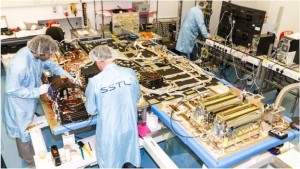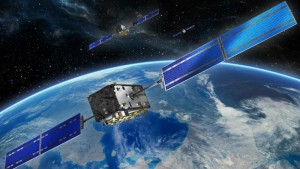
Brad Parkinson was awarded the 2016 Marconi Prize for his part in developing satellite navigation. In 1972, then a US Air Force Colonel, he was put in charge of “Program 621B”, which became the Global Positioning System. Over one long September weekend in 1973 he and his team decided all key GPS elements. The first satellite was launched in February 1978.
Paul Verhoef, ESA’s Director of the Galileo Programme and Navigation-related Activities, invited Prof. Parkinson to ESA’s facility in the Netherlands to address the Directorate’s annual gathering on 11 January. Also present were members of the European Global Navigation Satellite System Agency – set to oversee newly operational Galileo services – and the European Commission. Read more…



